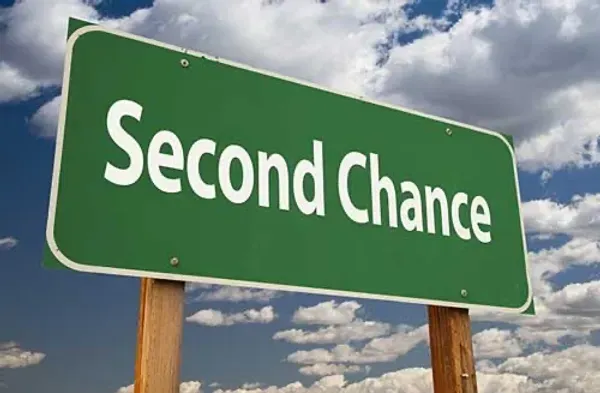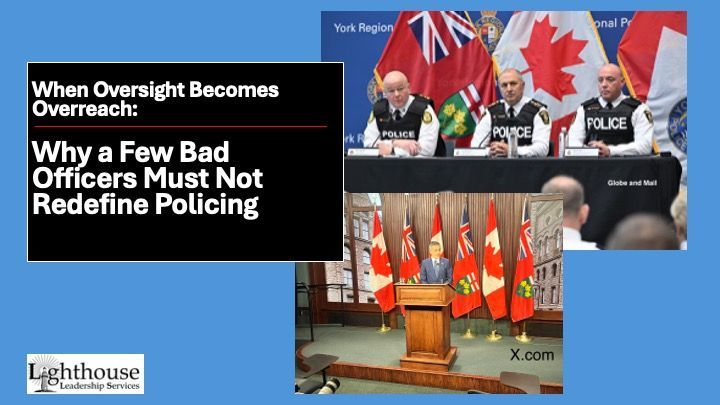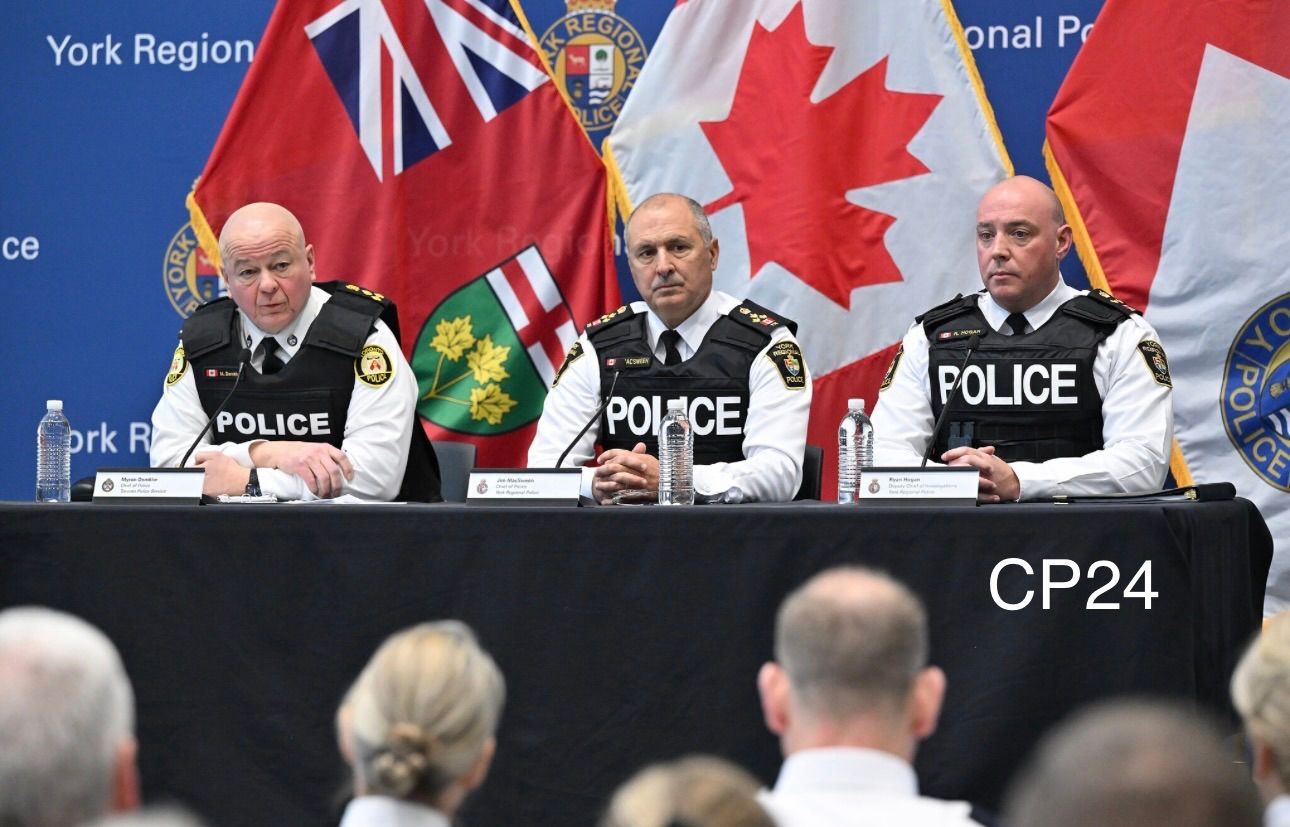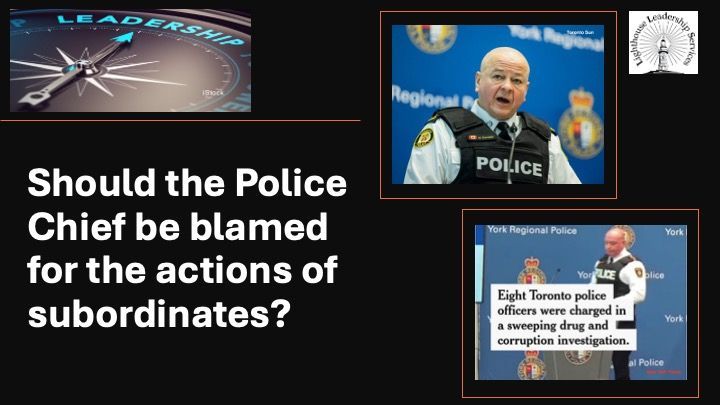By Chris Lewis
•
February 7, 2026
Thursday’s announcement of the arrest of seven serving and one retired Toronto police officers for corruption, was a dark moment for policing in Canada and for the communities that trust their police to always do what is honest and right. At times like this it is too easy for us all to lose trust in those in which we should hold the highest level of trust in society, because of the actions of a few. I believe that we must remind ourselves about all that is good in policing in Canada – where training, standards, equipment, professionalism, governance and competence are second to none in the world. I view this as both bad news and good news stories. The bad news is that seven officers allegedly broke their oaths and committed heinous crimes. Startling, sad and completely unacceptable for the profession and more importantly for the public they were sworn to serve. The “good” news (although I struggle with the word) is that the system worked. Suspicions arose about a certain Toronto Police (TPS) officer’s potential involvement in a crime in York Region. Police there notified the Chief of the TPS, and they quickly agreed that York Regional Police (YRP) would lead the investigation, and TPS would remain in a support role by providing Professional Standards investigators and other assistance as required. I assume that would mean investigative support personnel and access to internal information about the TPS officers in question, like their schedules; what police cars they were driving; assignments and personnel file information, at minimum. By design, the TPS Chief did not have decision-making authority in the investigation. None of that raises any red flags for me. This was a large and complex investigation that eventually involved 400 officers and would require highly experienced investigators and specialty personnel. YRP and TPS have all of that and more. The leaders that addressed the media spoke competently and professionally, leaving no doubt that they would leave no stone unturned. Evidence was gathered and arrests of officers and others were made. The public was then appropriately advised of as many details as we have ever seen released in a media conference when charges were before the courts and an investigation ongoing. TPS Chief Demkiw announced he was seeking to suspend at least some of the officers without pay. That is something that has only recently became acceptable under Ontario’s policing regulations and must be used judiciously. Of course, social media “experts” and anti-police pundits took over from there. Please allow me to offer answers to some of the most consistent queries: Why wasn’t an independent oversight body like the Special Investigations Unit (SIU) brought on to investigate? Police shouldn’t investigate police! It’s not the legislated mandate of the SIU to conduct criminal investigations into police except in specific circumstances around police use of force or sexual assault. Nor is it the mandate of Ontario’s Inspectorate of Policing. These governing bodies do not possess the expertise or resources to conduct massive criminal investigations into officers and organized crime groups. Only large police services have the critical mass and knowledge to manage such difficult operations. An option for Chief Demkiw was to let his Professional Standards personnel be the liaison for TPS information and potential Police Act charges against TPS personnel that might emerge but leave the investigative support/assistance piece to another large outside service. That would’ve helped suppress any concern around TPS investigating their own. But police services often conduct criminal investigations into their own people with regularity in Ontario, unless they involve senior officers. There’s no hard and fast rule or Ministry guidelines on the issue to my knowledge. The Toronto Chief should step down. This happened under his watch. I cannot speak to his day-to-day job performance, but in my view, Chief Demkiw did not handle this case wrongly. The alleged illegal actions of 0.12% of his police personnel do not justify his removal. If he knew and didn’t take action that would be different but there is no suggestion of him doing anything but throwing his full support behind the YRP investigation. Again, perhaps he should’ve kept TPS out of it as much as possible, but that was a judgement call made in the early stages of an investigation that grew very large over time. All cops are corrupt. Why didn’t other officers stop them? What? This was seven officers in a police service of almost 6000 TPS officers and out of over 70,000 police officers in Canada. It is awful, without a doubt and concerning to say the least, but this does not mean there is a wave of police corruption and ties to organized crime across the nation. As this criminality unfolded and as we speak, thousands of officers are on the streets of Canada, saving lives and risking their own; patrolling communities; preventing crime and victimization; responding to life and death situations; arresting evil criminals and more. They do that professionally, bravely and honestly, or they are held to account under various laws and disciplinary processes. They are governed and regulated more than any other profession in Canada. Yes, some cops (even one is too many) out of those 70,000, commit crimes in their careers, which is unacceptable. Some of that occurs while they are on duty, some not. It is disappointing when it happens, but with rare exception police leaders will not accept it and will deal with it expeditiously through due process. In cases where a police supervisor or executive doesn’t take proper action, they will be held to account as well. As a rule, no one hates dirty cops more than honest cops. They hurt the profession as a whole across the continent. Canadian officers take a reputational hit regardless of where the wrongdoing occurs in North America. We don’t know the details yet of what these accused officers were doing or how much of it they were doing on the job, versus off duty. IF evidence comes to light in the ongoing investigation that colleague officers knew or participated in any way in the criminality, they will be in trouble as well. Let’s not jump to conclusions that other officers “must have known” and let the investigation run its course. Why do officers not have more oversight on the use of police databases? Police officers and a number of civilian colleagues have access to the Ministry of Transportation (MTO) database that holds all licenced driver and vehicle registration information in Ontario. Most police cars have computers in them that can access that information, which includes driver’s and owners’ addresses. It is accessed non-stop, 24/7, as a regular part of core police business. Other databases involving outstanding warrants and criminal history, as well as occurrence records are similarly accessed. Government employees that work at MTO or in some other Ministries have like access to people’s names and addresses. That is reality in all 10 provinces. We cannot limit legitimate government employee access to vital systems on the off chance they may be inappropriately used. That includes those that we entrust to carry guns and make life and death decisions. When such databases are misused in some way, proper action must be taken promptly, as it was in this case, as opposed to hamstringing the operability of several hundred thousand honest employees across Canada. Canadian police officers are internationally highly-regarded, but they are human, have frailties and will honestly err on occasion while truly trying to do their best. That can be dealt with and repaired when it occurs. But when officers commit acts of malice, they will be appropriately held accountable and dealt with through due process. That is the bedrock of Canadian policing. Public trust in police is paramount to effective policing, and largely we enjoy that in our country. We cannot let this dark day define what policing actually is in Toronto or anywhere in Canada. Canadians should move forward with confidence that the system did work in this case. Those that violated our trust are before the courts. The vast, vast majority of officers that are still out there bravely doing what they do so well, will never let us down. Please give them a chance.





